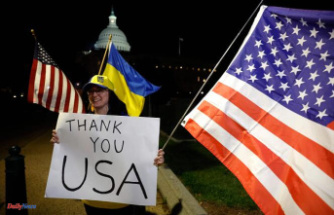From the same birth, at the end of the 19th century, of the Olympic Games, promoted by high-class men and conservative ideas, the presence in them was discussed, reduced to practicing a few modalities. Up to Amsterdam'28, women were not allowed to compete in athletics (and gymnastics).
The vision of several of the participants in the 800 meters collapsing, exhausted, after finishing the test produced a negative impression on the leading ranches. Such a great impact, that the new Chairman of the International Olympic Committee, the Count Belgian Henri de Baillet-Latour, elected in 1925, suggested that all female sports were eliminated from the program of modern games, imitating those of antiquity, reserved to men.
No such extremes were reached. But, in athletics, within the reduced general program, women had veiled distances greater than 200 meters for 32 years. To Rome'60. By discounted, with this mentality, the women's marathon was condemned not to be celebrated.
However, women (few, denyed, compadened) had running marathons, as another form of rebellion and conquests, since, let's say, always. In the 70s it was already taken into account. Especially since the Australian Adrienne Beames broke with clearance, in September 1971, the theoretically arranquable barrier for the ladies of three hours (2:46:30).
At the beginning of the 80th, the Fondaist Norway Grete Waitz was very popular, who, on April 17, 1983, left, in the London Marathon, the best world brand - then did not recognize themselves as racing races, because of The differences between the tours - at 2:25:29. The next day, in Boston's, the American Joan Benoit was a detour to 2:22:43.
The marathon was an admitted test in the European Championships from Athens'82. And it was already included in the first world championships, held in Helsinki, in 1983 (in which Waitz had defeated). The absence of it from the Olympic program lacked meaning. He was admitted to Los Angeles'84.
Waitz and Benoit, born in Maine in May 1957, were, then, the favorites that warm and humid August 5, 1984. In the transcendence of the moment, an authentic milestone for female sport, part of the audience that crowded the journey no I could contain tears. Benoit took his head at the race hour. Waitz I saw her get away from her, but she reacted at kilometer 30.
Too late. Benoit wore a long winning inertia and crossed the line at 2:24:52. Waitz did it at 2:26:18. The third classified, the Portuguese Rosa Mota (2:27:57), Champion of Europe, would win, among new titles, the Olympic in Seoul '88. The fourth, the other great Norway, Ingrid Kristiansen, would happen in London to Benoit, in 1985, in the chronometric reign (2:21:06).
Date Of Update: 05 August 2021, 06:58











